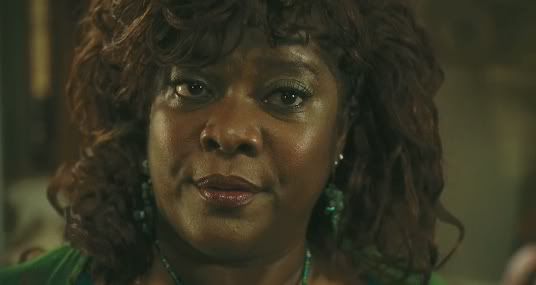
For Colored Girls is more interesting as an artistic statement than an actual work of art. For better or worse, Tyler Perry is the modern-day Douglas Sirk. He brings a very particular (read: peculiar) world view to every project, even, apparently, his adaptations. He perplexes film critics today, but I have a feeling that in 50 years he’ll have the same cult following that Sirk has posthumously enjoyed.
That said, how do I feel about Colored Girls? Remember that particular world view I was talking about? Even as a white twenty-something male, I can safely assume the black female experience is far removed from Perry’s conception of it. It’s not that anything that happens in his film is beyond belief. Iraq War veterans do abuse their wives and children; and they sometimes kill them, too. Promising young dancers do sometimes go to back-alley abortionists. And some black, male professionals do lead alternate lives “on the down low.”
It’s not that what happens in Perry’s film is so ridiculous. The problem is the way Perry stages his high drama and the pat catharsis he strives for. Everything that happens fits neatly inside his Southern Baptist sensibilities. Yes, all these bad things happen, but if the women can come together, stop being promiscuous, and take their own share of the blame, all will be good again. Finally, Perry’s daytime TV conception of city life and the “ghetto” is about as enlightened as a very special episode of The Fresh Prince of Bel-Air’s.
All those issues aside, the impressive cast strives valiantly to breathe life into Perry’s stilted dialogue. The opportunity to see Loretta Devine, Kimberly Elise, Phylicia Rashad and Kerry Washington — four of the most criminally under-utilized black actresses working today — shine in one film is golden. And, in a limited role as a broken down abortionist, Macy Gray packs a punch, too.
How could Perry produce such utter crap given such a talented cast? Short answer: He’s a true auteur. He couldn’t do it any other way.

No comments:
Post a Comment